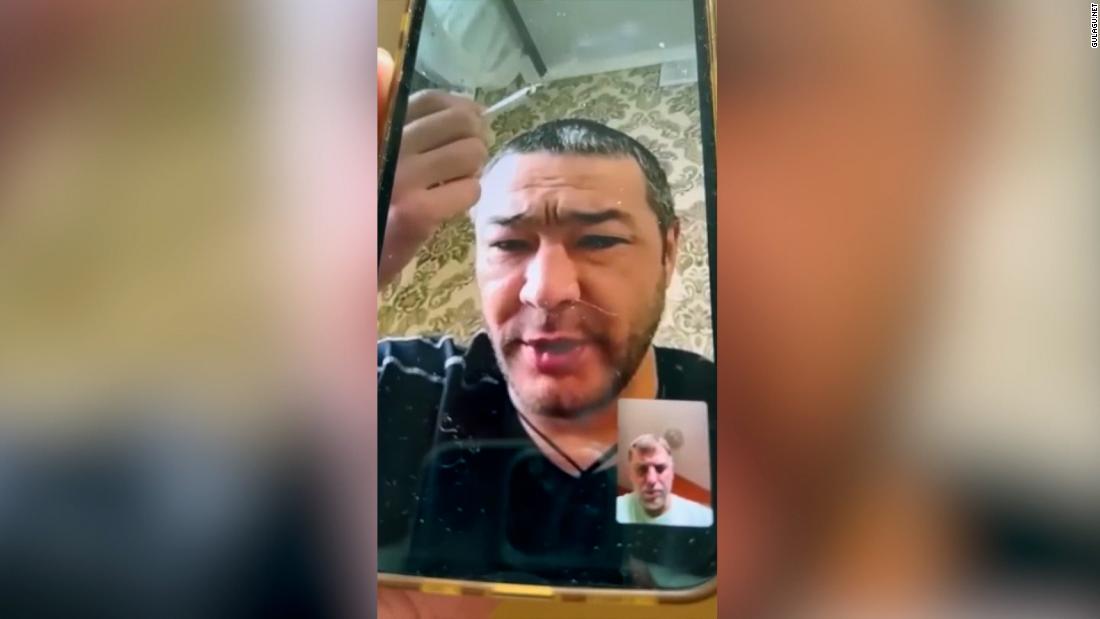As the presidential race between former President Trump and Vice President Harris tumbles toward its November finish line, legal battles surrounding the 2024 elections are beginning to heat up.
Republicans have filed challenges in major swing states nationwide that revolve around proof-of-citizenship requirements and mail ballot deadlines, while Democrats have challenged state election officials who have expanded their roles.
The blitz of election litigation, much of which echoes the 2020 legal challenges that formed the foundation of Trump’s baseless mass election fraud claims, threatens to sow confusion among election officials and voters — and is expected to only multiply in the days and weeks after the election.
Proof of citizenship
Conservatives have put proof-of-citizenship requirements front and center this election cycle, both in the courts and on Capitol Hill.
Though independent studies indicate noncitizen voting is rare, it became the sticking point over negotiations to avoid a government shutdown, until Speaker Mike Johnson (R-La.) on Sunday abandoned his effort to couple a funding bill with a proof-of-citizenship measure.
The battle is still raging in the courts, however.
In Nevada, the Republican National Committee (RNC) and the Trump campaign sued Secretary of State Francisco Aguilar (D) earlier this month, claiming he failed to purge more than 6,000 noncitizens from the state’s voter rolls.
They are asking a state judge to order Aguilar to verify that all registered voters are, indeed, citizens before November’s election and take steps to regularly maintain Nevada’s voter rolls.
Aguilar has not yet responded to the lawsuit, but state officials have previously cast doubt on the figure, contending that many of the people in question have likely been naturalized as citizens in recent years.
In Arizona, where documentary proof of citizenship is required to vote in state races, the Democratic secretary of state recently identified 97,928 registered voters who were incorrectly understood to have provided proof.
The Republican recorder in Maricopa County, which spans the Phoenix area and is the state’s most populous county, asked the state’s high court to get involved to determine whether they should be allowed to get full ballots this November.
On Friday, the court ruled that they should.
“We are unwilling on these facts to disenfranchise voters en masse from participating in state contests. Doing so is not authorized by state law and would violate principles of due process,” the Arizona Supreme Court wrote in its ruling.
Mail and absentee ballots
In 2020, the sudden influx of mail-in and absentee voting in the middle of the pandemic spurred a flurry of lawsuits from Trump and Republicans casting doubt on the results.
This cycle, Trump is encouraging Republicans to utilize mail-in voting even as he rails against it.
“The mail-in voting isn’t working. It’s corrupt,” he said during a Pennsylvania rally in July. “But until then, Republicans must win.”
The RNC has brought two, separate suits against Michigan Secretary of State Jocelyn Benson (D) concerning absentee ballots: The first challenges her guidance that election officials should mark ballots with missing stubs as “challenged” rather than outright reject them.
The second lawsuit concerns signature verification. The RNC claims some local clerks aren’t following a requirement enshrined in state law to physically mark absentee ballot envelopes when they are approved for tabulation.
Republicans have filed similar lawsuits in other battleground states like North Carolina, where the RNC is challenging state election board guidance to count absentee ballots even if they are submitted in an envelope that doesn’t meet certain standards.
Mail-in envelopes have also been top of mind in Pennsylvania, where a coalition of voting rights groups sued to challenge a state law precluding ballots with incorrect or missing dates on the envelope. About 10,500 ballots were rejected on those grounds in the 2022 midterms, state officials wrote in court filings.
The case attracted the attention of the Democratic National Committee and RNC, which intervened to support and oppose the challenge, respectively.
The Pennsylvania Supreme Court earlier this month in a 4-3 decision threw out the challenge, saying a lower court lacked jurisdiction because the lawsuit did not name all 67 county election boards as defendants. It remains possible that the plaintiffs could file a new lawsuit and again seek the court’s intervention.
Election certifications
In Georgia, another critical swing state, the State Election Board faces a lawsuit from Democrats challenging recent changes it made to the state’s election certification rules.
Just weeks before Election Day, the state board passed a series of rules that now require local boards to conduct a “reasonable inquiry” before certifying election results and say investigations must occur if any discrepancies are discovered at a precinct. If an error beyond correction is identified, it’s up to the local boards to determine how to “compute the votes justly,” per the new rules.
Critics have warned that the last-minute changes could create confusion among election workers and cause delays in certifying results — which could ripple out into races where deadlines to certify results are enshrined in the U.S. Constitution.
“At minimum, these novel requirements introduce substantial uncertainty in the post-election process and — if interpreted as their drafters have suggested — invite chaos by establishing new processes at odds with existing statutory duties,” the August lawsuit filed by the Democratic National Committee and several Democrats reads.
The lawsuit is set to go to trial on Oct. 1, when a judge will determine whether both rules changed by Georgia’s State Election Board should be invalidated to prevent “confusion and disorder.”
Though neither Harris nor her campaign are formally a part of the lawsuit, they’re backing the effort to rein in the unelected board of three Republicans, one Democrat and a nonpartisan chair.
“Certifying an election is not a choice, it’s the law,” Harris-Walz principal deputy campaign manager Quentin Fulks told The Hill when the lawsuit was filed. “A few unelected extremists can’t just decide not to count your vote.”















 English (US) ·
English (US) ·